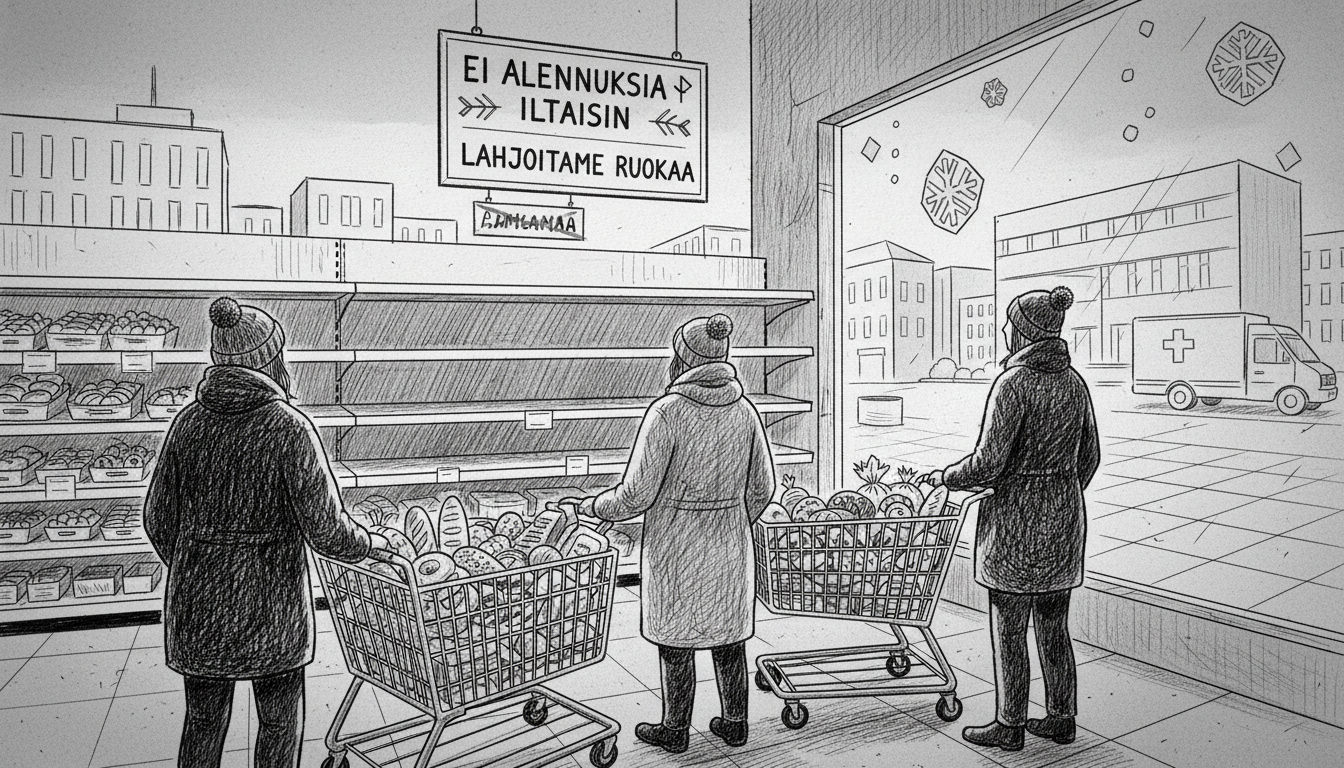A supermarket in Salo, Finland has stopped its evening bakery discounts after customers began hoarding products before the sale period began. The S-Market Plaza location previously offered 60 percent discounts on baked goods starting at 8 PM each evening.
The store manager explained that customers would arrive much earlier and fill their carts with buns and other bakery items. They would then wait around the store until the discount period officially began. This behavior created problems for other shoppers who genuinely needed the discounted items during the intended time frame.
"I understand that a 60 percent discount was important for low-income people," the manager stated. "The idea was for the discount to apply only during the final hour, not right after 6 PM."
The situation became so problematic that bakery products often ran out before the actual discount period started. This left legitimate evening shoppers without access to the affordable baked goods they had come to purchase.
Finland has a strong tradition of evening discounts in grocery stores. Many chains offer reduced prices on fresh products nearing their expiration dates. This practice helps reduce food waste while providing affordable options for budget-conscious consumers.
The Salo incident highlights a growing challenge for retailers balancing social responsibility with practical business operations. When customers exploit discount systems, stores must choose between maintaining popular programs or discontinuing them entirely.
This case reflects broader tensions in Nordic welfare societies. While social safety nets provide substantial support, many still rely on retail discounts to manage household budgets. Finland's high cost of living, particularly in food prices, makes these savings crucial for many families.
The supermarket has implemented an alternative solution. Instead of evening discounts, unsold baked goods now go to food aid organizations. This approach still addresses food waste concerns while ensuring equitable distribution to those in genuine need.
Similar challenges have emerged across Nordic retail sectors. Some Swedish stores have modified discount systems after observing comparable customer behaviors. Norwegian retailers have experimented with digital solutions to manage discount timing more effectively.
The store's decision represents a pragmatic response to an unsustainable situation. While disappointing for honest discount shoppers, the change ensures fairer distribution of affordable food options through charitable channels.
What does this mean for Nordic retail trends? Retailers may increasingly move toward charitable partnerships rather than public discount systems. This approach maintains social benefits while avoiding the logistical challenges of managing customer behavior during limited-time promotions.
The situation in Salo demonstrates how well-intentioned retail policies can sometimes backfire. It also shows how businesses adapt when community behaviors undermine their original social goals.

